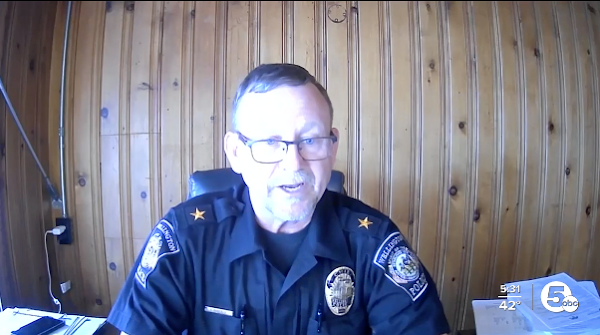Wounded Times
Kathie Costos
April 17, 2022
When you think about Easter, what comes to your mind the most? Is it getting together with family and friends? Is it decorating, buying candy or hiding eggs? Maybe getting dressed up? Carrying on a family tradition?
For some, it is going to church and hearing about how Jesus walked out of the Sepulcher. For me it is thinking about all the people who believed that Jesus was the Son of God and then watching Him die on the cross. Imagine if you were there. Would you feel as if what you believed had just been proven wrong? Or, would you remember the other things you saw happen with your own eyes that Jesus did?
Would you remember seeing the lame walk, the blind see, the crowd being fed by five loaves of bread and two fish? Would you remember what it was like to hear His voice and feel the your soul being lifted up by His words? Would you still believe He was the Son of God and His life was not really over?
There are things we may think are impossible, until we see them with our own eyes. Still, when other things happen, we tend to forget about God turning hopeless situations into miracles. I imagine the people spent three days feeling as if an innocent, wonderful man, was put to death and that was the end of His story. His mission and life ended as far as they knew and with Him went their hopes.
Then think about what it was like for them to hear that the Sepulcher was empty and He lived. Think about those who were with Him and fearing for their own lives, and then seeing Him, hearing His voice, looking into His eyes and seeing the marks on His hands and feet. The impossible became possible. People knew that what they believed was actually true and the knew everything He said to them was true.
We all know what it is like to do the right thing and suffer for it. We know what it is like to be praised for helping someone by the same people who walk away when we ask for help. We know what it is like to want to visit the lonely people we know, call them and pray for them, as much as we know what it is like when no one is there for us.
We know what it is like to hunger for hope when it seems no matter what we do, how many times we ask for help or search for solutions, nothing changes. Then we wonder why we are left abandoned by those we stood by. Why were we left hungry by those we fed? Why are we not worthy of support by those we supported?
Jesus had served His Father and did what He was sent to do. He suffered for it but then was glorified. He knows everything we're going through, including getting angry, crying and struggling to do the right thing.
We celebrate His birth and His Resurrection, but we forget about how His life matters in our own. Nothing we go through is not known and experienced by Him. He knows what it is like when we lose hope, feel as if no one cares about us. When people do not believe what we say. When we are abandon and let alone. He knows what it is like to do what God wants us to do, and suffer for it. What it is like to help others, but no one will help us.
He also knows what it is like to feel being a part of miracles to others. He wanted to save everyone and heal everyone, but not everyone wanted what He had to give. That did not stop Him from doing what He could and nothing stop Him from doing what He can now.
No matter how lonely you are, because of Him, God hears our prayers. No matter how we are treated, God sees it and He will not abandon us. People walk away from us but The Father, Son and Holy Spirit are always with us. I know I am comforted by all the times when everything seemed so hopeless for me, but God turned it all around. Right now, I am comforted knowing no matter how lonely I feel, God is still there and trying to work things out for the miracle I've been praying for. He is there for you too.
This Easter Day, remember what this day is truly about and let it fill you with the hope of miracles in your own life everyday and let it guide you to being part of a miracle to others.
Kathie Costos author of healing PTSD books.
Latest books
The Lost Son
Part One
Alive Again
The Lost Son Part Two
Stranger Angels
The Lost Son Part Three












